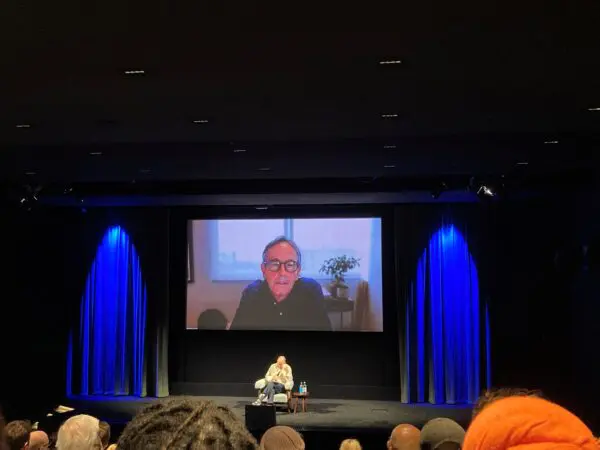Steven Knight, the writer of Locke, Peaky Blinders and Eastern Promises has discussed his career and shared advice for new writers as part of BAFTA’s 2014 Screenwriters’ Lecture series.
The discussion began with a highlights reel of six of the prolific screenwriter’s most notable works, which served as a visual stimulus for the subsequent evaluation of the writer’s craft. Knight also spoke readily about how the success of his first screenwriting venture – the BAFTA-nominated Dirty Pretty Things – coincided with the prosperity of the game show Who Wants to Be a Millionaire?, of which he was co-creator.









